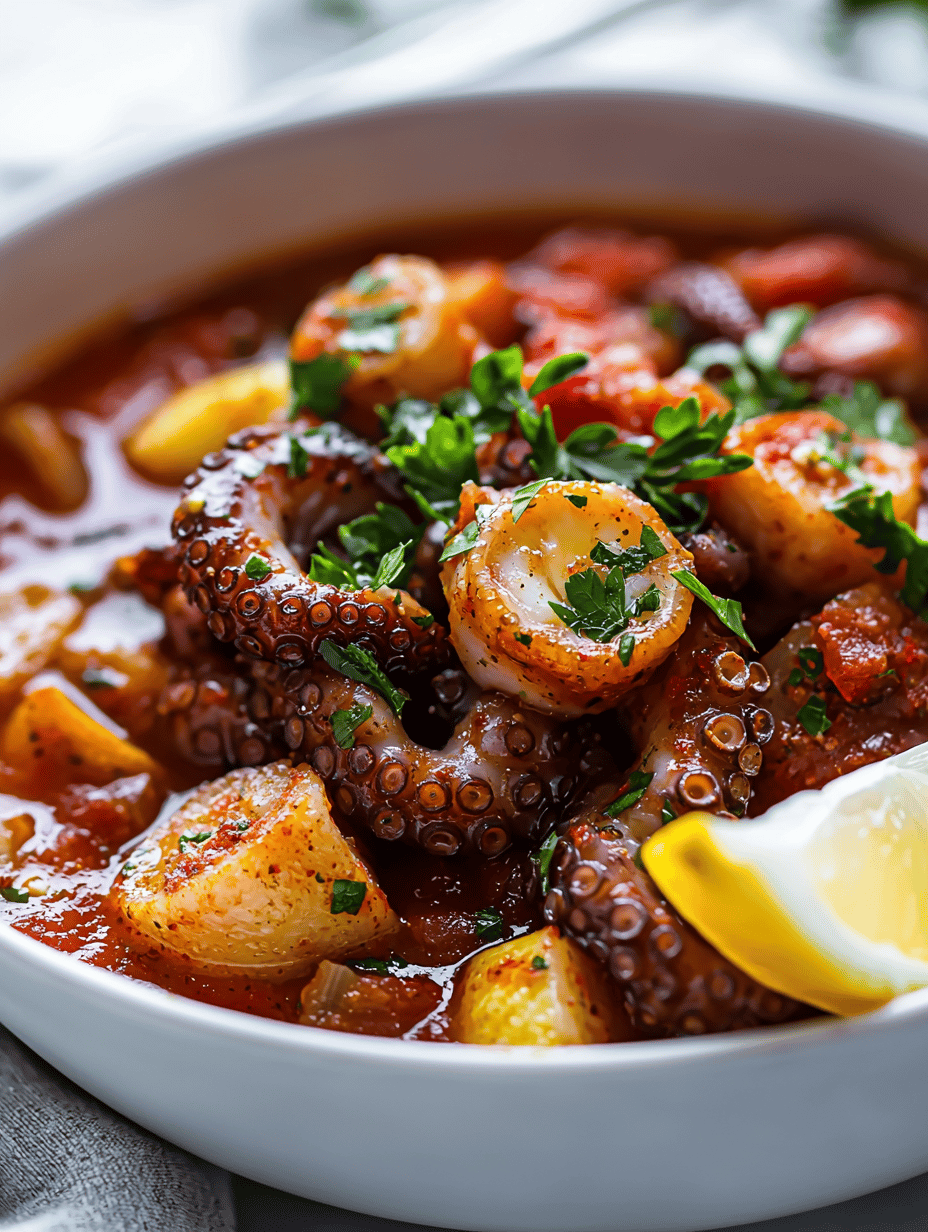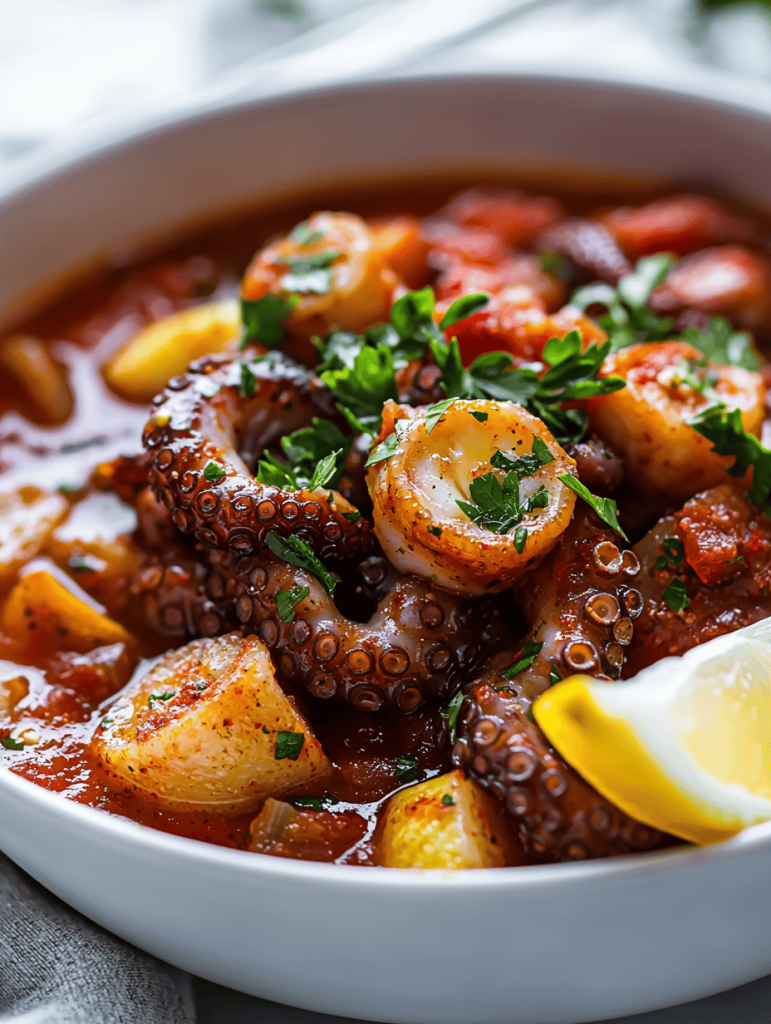While most see octopus as a simple seafood delight, I find myself drawn to its ancient resonance. The way the aroma of slow-cooked onions mingles with the briny sea scent, filling the kitchen with nostalgic echoes of Mediterranean markets. This dish isn’t just a stew; it’s a dialogue with centuries of Greek fishermen and home cooks who passed down their secrets in whispers and tastes.
In the quiet moments when the spoon clinks on the pot, I feel the weight of tradition and innovation blending. The tender octopus, soaked in a bath of red wine vinegar, spices, and sweet caramelized onions, redistributes its story on a plate. It’s a reminder that food can reconnect us with the past, especially right now as seasonal ingredients inspire a longing for authentic, slow-made comfort.
WHY I LOVE THIS RECIPE?
- It transports me to hidden neighborhoods of Athens I visited long ago, with every simmer releasing familiar smells.
- The way the dish balances richness and acidity makes my taste buds dance—no other stew has quite that complexity.
- Cooking it demands patience, which is a rare, precious thing in our fast-paced world.
- It’s a reminder of the value in tradition, and how each ingredient tells a story.
- Honestly, I get proud to serve a dish that carries Greek history in every bite.
As the weather cools and the season turns inward, this stew feels like a warm reunion. It embodies a slow-food ethos that’s perfect for cozy Sundays or festive gatherings. In a way, it’s more than food; it’s a tribute to resilience and the enduring spirit of the Mediterranean.
Whether shared with family or enjoyed alone, this Greek octopus stew reminds us how powerful simple ingredients can be taken back on a journey through time. It isn’t just about eating; it’s about connecting with a tradition that stands the test of seasons and stories.

Greek Octopus Stew
Ingredients
Equipment
Method
- Heat olive oil in a large heavy pot over medium heat until shimmering. Add the sliced onions and cook, stirring occasionally, until they soften and begin to caramelize, about 10-15 minutes. The onions should turn a rich golden-brown and release a sweet aroma.
- Add the minced garlic, ground cinnamon, and paprika to the onions. Stir for about 1 minute until fragrant, making sure not to burn the garlic. The mixture should smell warm and aromatic.
- Pour in the red wine vinegar, scraping the bottom of the pot to deglaze and lifting up any flavorful brown bits. Cook for 2-3 minutes until the vinegar evaporates slightly, blending with the onions and spices.
- Place the octopus into the pot, breaking it into manageable pieces if needed. Pour over the broth, making sure the octopus is mostly submerged. Bring the mixture to a gentle simmer.
- Reduce the heat to low, cover the pot, and let everything simmer gently for about 1.5 to 2 hours. The octopus should become tender, and the sauce will thicken and deepen in flavor as it cooks slowly.
- Uncover the pot in the last 15 minutes to allow the sauce to reduce slightly, achieving a rich, glossy appearance. Season with salt and pepper to taste. The octopus will be tender, with a slightly glazed surface.
- Gently stir the stew, checking the seasoning and adjusting salt and pepper if needed. Serve hot, ideally with crusty bread or alongside a fresh Greek salad.
Enjoying this stew is like opening a window to the Mediterranean coast, where time slows and every bite whispers tales of the sea. The flavors linger, reminding me that food is at its best when it’s made with patience and a touch of history. It’s a humble dish, yet it carries layers of meaning and place that stay with you long after the last spoonful.
Whenever I return to this recipe, I feel a quiet sense of pride—knowing I’m honoring the past while making something meaningful for the present. It’s a little ritual that feeds more than just the stomach; it nourishes the soul in times when we need heritage and heart the most.

Hi there! I’m Elias Carter, the foodie and recipe creator behind Dramatically Stirring.
Food has always been my love language. Growing up in the heart of North Carolina, I spent countless hours in the kitchen with my grandmother, learning how a simple meal could tell a story, bring people together, and stir up emotions far beyond taste. That’s the spirit behind this blog — food that isn’t just cooked, but dramatically stirring.

